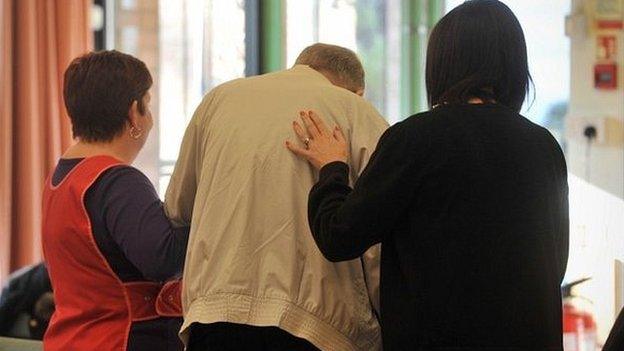Coronavirus: Many day care centres reopening at 10% capacity
- Published
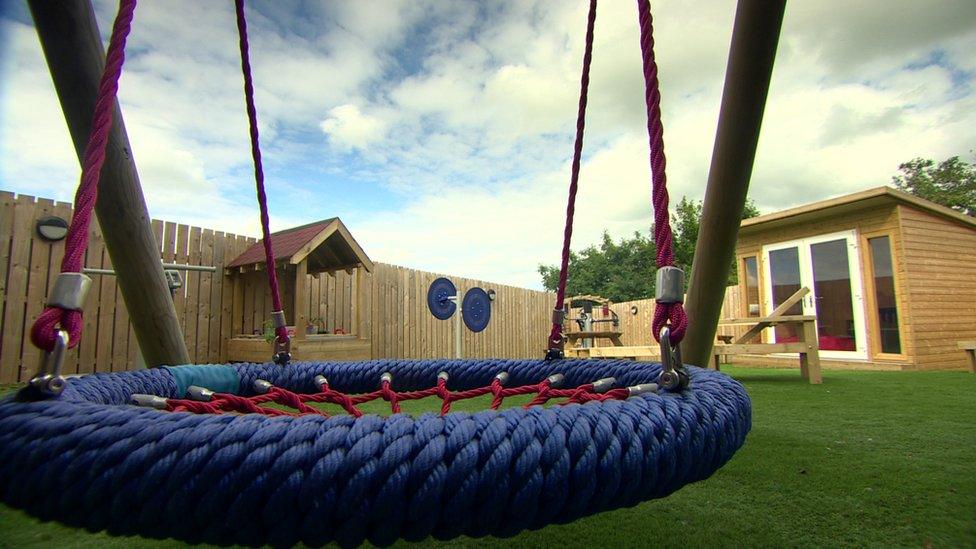
Many day care centres for people with learning disabilities are initially reopening at 10% capacity, it has emerged.
They closed in March as the health service planned to deal with Covid-19.
Trusts are now putting plans in place for a phased return of services but it is unlikely they will return to pre-pandemic levels before the autumn.
Some families, carers and support organisations are worried there will not be enough places.
The Western Trust's reopening plans include increasing capacity to 50% by September, while the Belfast Trust is planning a phased reopening for the most vulnerable.
Paula Jordan, from the Special School Principals Strategic Leadership Group, said there was a lack of certainty for young people transitioning out of special education into adult services.
"There are so many young people out there who have no idea where they are going to in September," she said.
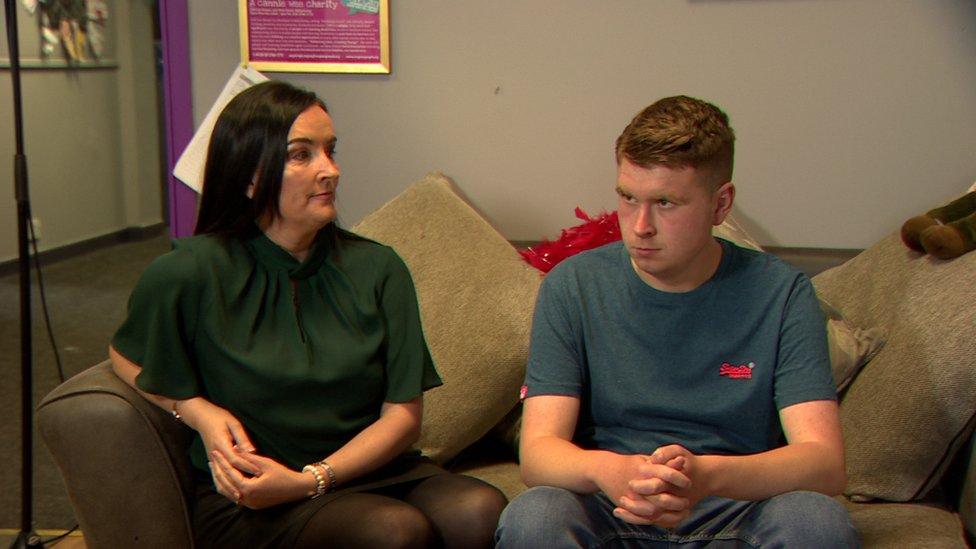
Brandon, 19, picture with his mum Charmaine Hanson, has autism and finished school in March during his transition out of education
"For the parents as well that's such huge uncertainty. For our young people who have always had a routine of five days a week, that's going to be a huge change.
"It's going to make things very uncertain for them. It will be difficult to get into a good routine," she added.
A Department of Health spokesperson said: "The recovery process will be informed by workforce readiness, population need, public health guidance, risk assessment and impacts on other parts of the HSC system."
They added that the next stage will see all trusts "develop detailed service-specific action plans", which will look at staffing levels, the ability of centres to implement social distancing and other issues such as infection rates.
'I can't reassure him'
Brandon, 19, has autism and finished school in March during his transition out of education.
He and his mother Charmaine Hanson were preparing for him to begin a supported employment course but don't know when that will begin or for how many days.
Ms Hanson believes those with learning disabilities have been forgotten about.
"With Brandon being autistic and having severe learning difficulties he needs to have a routine and know what is happening and he doesn't," she told BBC News NI.
"He turns to me looking for answers and I can't give him any. Any other time I could reassure him," she added.
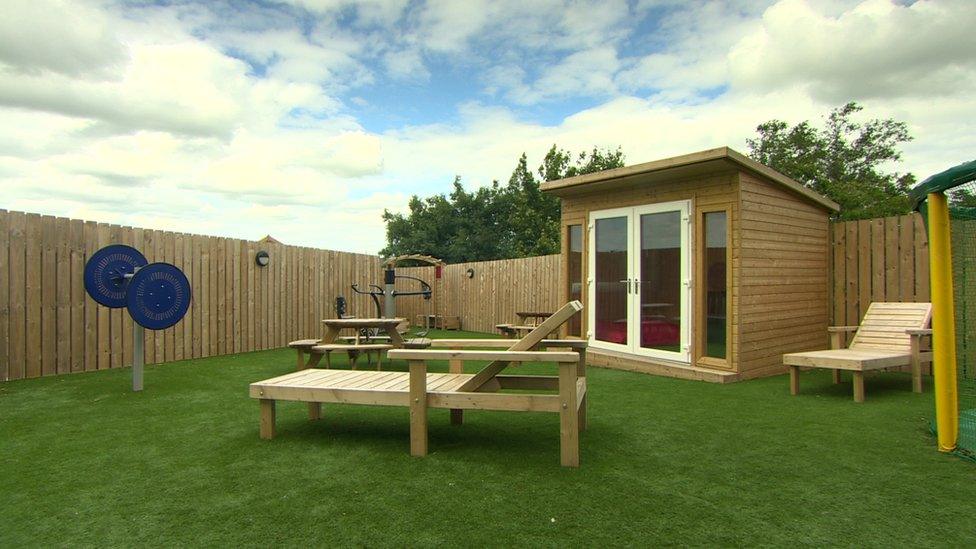
"What are they meant to do - stay at home? They need to be socialising, they need to be learning and mixing with their peers," she said.
Lesley-Anne Newton, the director of ARC, a support organisation for care providers in the learning disability sector, said capacity gaps in services places a huge responsibility on families and the charitable sector to bridge the gap.
"People with a learning disability have a right to have access to opportunities that you and I have," she said.
"There needs to be a noticeable effort to ensure that we know who those young people that would be naturally transitioning into day opportunities, supported employment or training opportunities are," she added.
"We need to ensure that they and their families are aware of the range of services that are available to them to enable them to try and make a decision around what they would like to do.
"It's very important for the charitable sector to know about this pipeline of young people to collectively and collaboratively work with trusts and families to try to ensure some services can be offered," she added.
A spokesperson for the Education Authority (EA) said: "EA's Transition Service has continued to operate remotely providing support to young people and families during the Covid-19 pandemic.
"If a parent, or young person, is concerned in relation to their transition, they can contact their named transition co-ordinator who will be able to provide advice and support."
- Published29 April 2020
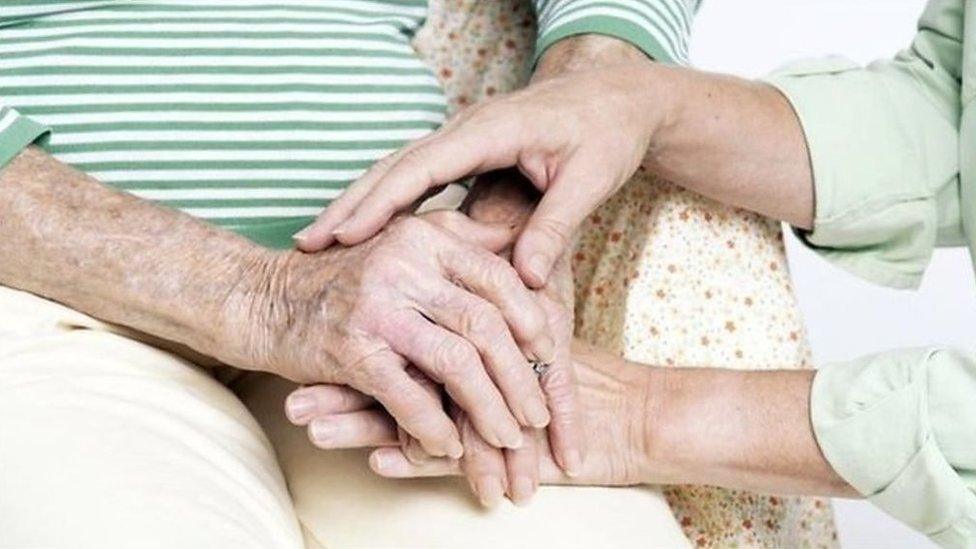
- Published8 July 2020
